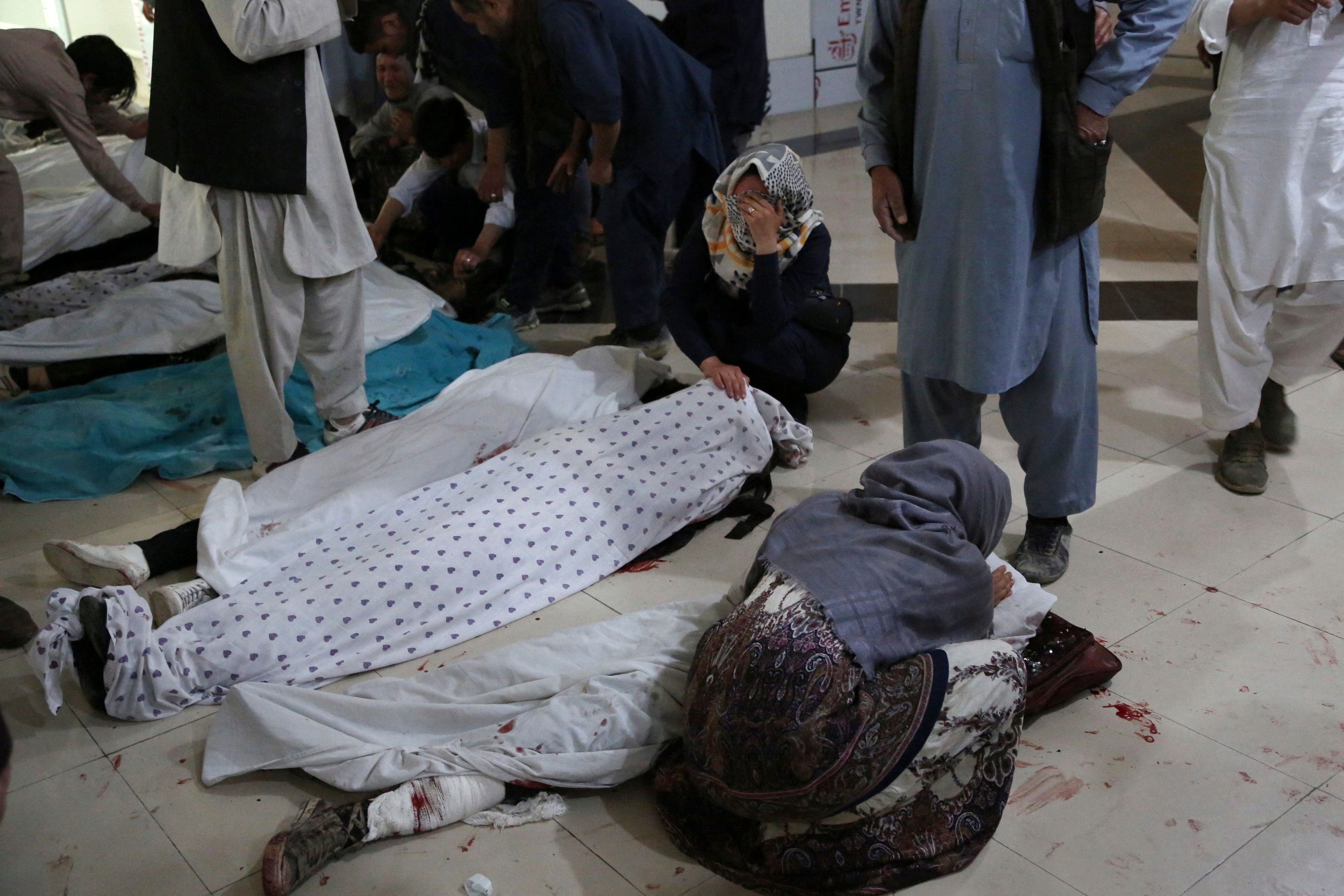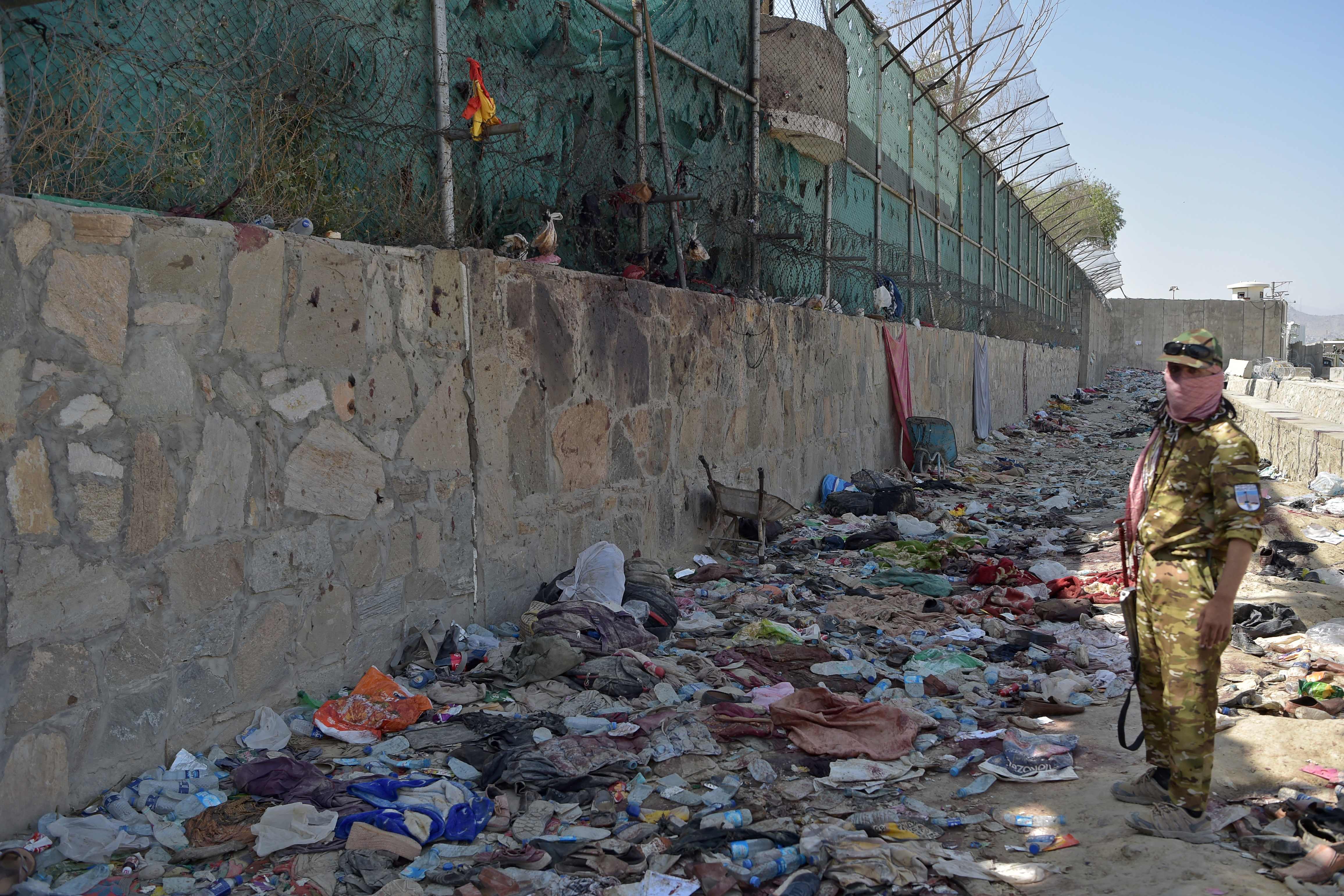‘I do not know whether we’ll ever recover’: Isis-K’s murderous campaign is Afghanistan’s untold story
Thursday’s Kabul airport bombing thrust Isis-K into the spotlight. But, as Kim Sengupta explains, the group has already committed a series of atrocities across Afghanistan


“I recognised her eyes; a father does not forget his daughter’s eyes. She also had a broken front tooth from when she fell off her bike. It’s these things that made me realise it was Zakia,” says Rajab Ali Razayee, describing how he identified the body of his 13-year-old daughter who had been killed in a bombing.
“She was very badly burned – her face, her neck, her hands; she must have suffered a lot. I started crying when I saw her. But I had to stop myself; I had the next task, and then I had to tell my family what had happened. I had to keep myself calm,” he says.
The task he speaks of was to identify another daughter, 18-year-old Saliha, whose body was in an ambulance outside. Mr Razayee then took his girls home in a taxi, to his wife, his remaining children and their grandparents.
The two girls, who had wanted to become doctors, had been missing for two days since the bombing at Sayed ul-Shuhada school in May, which killed 85 and injured 153, most of them students. There were other grieving families around the Razayee home: 14 girls from the neighbourhood were among the victims.

The bombings in Kabul on Thursday have led to international focus on Isis-K (Isis-Khorasan), which carried out the massacre of more than 150 people including 13 American military personnel. The US administration subsequently announced it had killed two senior members of the Islamist group in a drone strike in Nangarhar province.
Isis-K was set up at the beginning of 2015 when Isis was establishing its “caliphate” in Syria and Iraq. Its members were drawn from Afghan and Pakistani jihadis, some of them moving across from the Afghan and Pakistani Taliban.
Long before the carnage near Kabul airport, Isis-K had been carrying out lethal attacks in Kabul and elsewhere in the country. The victims were Afghan, and the deaths received limited coverage in the west.
The bombing of the school was just one of a series of atrocities. Last year Isis-K was responsible for killings at a hospital with a large maternity ward, run by Medecins Sans Frontieres (MSF) – one of the few such specialist units in the city.
Gunmen disguised in police uniforms headed for the ward and opened fire. Twenty-four people died, 16 of them women, expectant mothers and nurses. Two newborn babies were also among the dead. MSF closed the ward in the aftermath, saying it feared further attacks. In another attack, 63 people were killed when a suicide bomber blew himself up at a wedding ceremony.
Many of the attacks were sectarian. The school and the hospital were both in Dash-e-Barchi, an area where most of the residents are Shias from the Hazara community, which has faced repeated attacks. Two weeks after the school bombing, two minivans used for public transport were blown up, killing nine people. The suicide bombing at the wedding hall was in Chardahi, another Shia area.
Mr Razayee cannot comprehend why people would commit such barbaric acts. “Some people have much hatred in them and others suffer. I am not saying it is only Shias and Hazaras who are suffering: there are others, Sunnis, who have had many people killed and have had much suffering. I do not understand why they want to hurt people who are innocent,” he says.
The Razayee family were subsistence farmers from Bamiyan, who opened a shop after arriving in Kabul. Zakia and Saliha were the first from the family to go to high school, and their aspiration to attend medical college was a source of pride.
“We are poor people and we want our children to have better lives than us. It makes no difference to us whether they are boys or girls. Our daughters and other girls showed what they can do if they are given the chance,” says Mr Razayee. “But that chance was then taken away. We have lost our girls and we have a young son who has also been very badly affected by what happened. He saw the bodies after the bombing and now he has nightmares and he does not like going into crowds. I do not know whether we’ll ever recover from what happened.”

The killers who came to the MSF hospital knew the layout of the building, said administration officials: they moved from floor to floor, threw grenades, and burst into a room where women were breastfeeding their babies, where they opened fire.
Gulmai, 24, who had given birth to a baby girl a few days earlier, was shot in the arm and shoulder. She survived. “I was very lucky: I fell to the floor after I was hit and they may have thought I was dead and moved on to someone else.”
“Other women were killed, and babies; it was a terrible thing,” she adds. “Each time I look at my little girl now, I think how lucky we were. I was told one of them [the gunmen] was just a boy. How could they do such a thing? We have been very nervous about everything since then, and now things are getting really bad.”
Both the Razayees and Gulmai’s family are now trapped in Kabul.
Gulmai, her husband, and six family members tried to get to the airport, but they were turned back at a checkpoint. They are now considering whether they should make the land journey to Pakistan.
Mr Razayee says: “I have a niece in Sweden and I was hoping to take my family there. But that was not possible. We also tried to go back to Bamiyan, but the roads are not good. So all we can do now is hope that no more bad things happen.”
Join our commenting forum
Join thought-provoking conversations, follow other Independent readers and see their replies
Comments
Bookmark popover
Removed from bookmarks